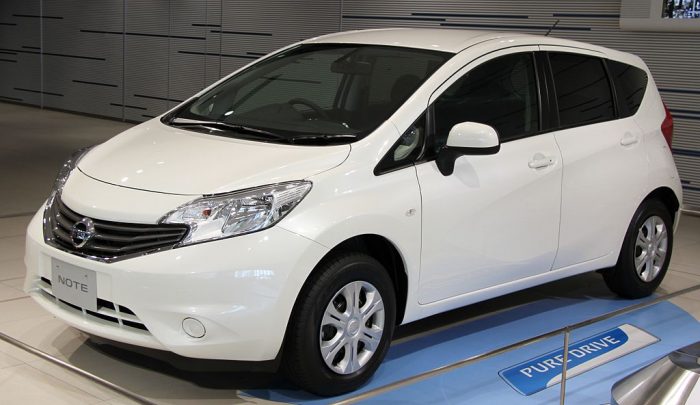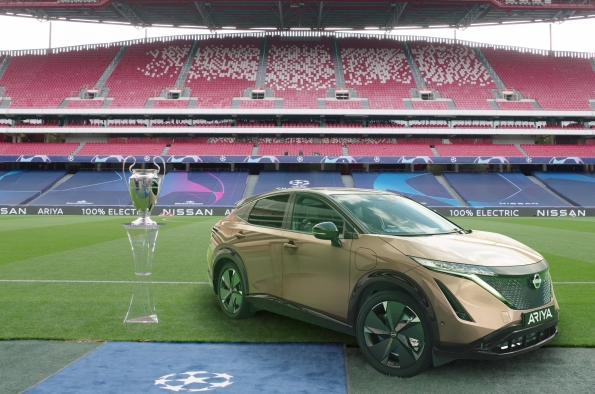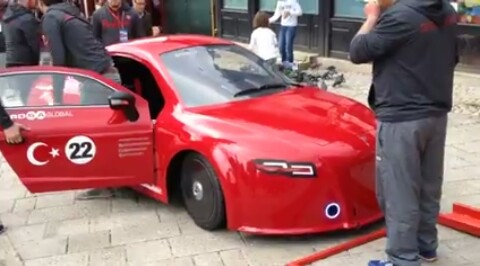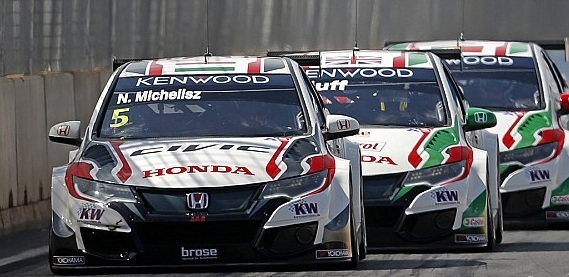Now Reading: Nissan unveils a new energy concept in collaboration with Foster Partners
-
01
Nissan unveils a new energy concept in collaboration with Foster Partners
Nissan unveils a new energy concept in collaboration with Foster Partners
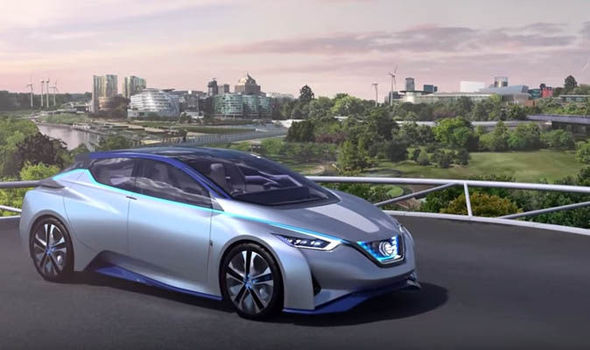
Carmaker unveils vision of mobility and energy use based on EV batteries
Electric vehicles are probably not only the future of urban movement, however could likewise offer a solution for energy provision, as per a brand-new concept revealed by carmaker Nissan.
The Japanese carmaker has actually worked together with British architecture studio Foster + Partners on a task that concluded that the fuel station of the future could actually be the vehicle itself, using ingenious vehicle-to-grid technology.
The future presumed by Nissan is based upon forecasts that 70% of the earth’s population could be living in city areas by 2050, by which time almost all global energy requirements could be fulfilled by renewable energy sources.
The vision likewise consists of the prospect of an Intelligent Mobility that includes cars interacting with their environment and populations adopting zero-emission, self+driving innovations.
Paul Willcox, chairman of Nissan Europe, stated: “Technology holds a number of the answers for the difficulties we face in our cities today.
“However, the true power comes when those technologies are incorporated with each other and the world around us.
“Our team believe that the future of transportation is reliant on both facilities and the environment.
“We’re searching for genuine, convenient solutions that exceed the item.”

These solutions consist of aforementioned vehicle-to-grid, in addition to battery storage, wireless charging, autonomous drive innovation and over-the-air connectivity, all which might integrate to change how energy is used and dispersed throughout significant cities.
David Nelson, co-head of design at Foster + Partners, included: “Integrating zero-emission innovations into the developed environment is important in developing smarter, more sustainable cities. That commitment needs to extend far beyond the vehicle– it must sit at the heart of everything we do.”

Nissan is presently trialling a vehicle-to-grid system in Europe which, when integrated with advances in its second-life (reusable) batteries, will permit motorists to function as individual ‘energy hubs’ that are able to shop, utilize or return clean energy to the grid.

Stay Informed With the Latest & Most Important News
Previous Post
Next Post
-
 01Polestar Boss Says It’s Time To Outrun BMW M And Mercedes-AMG
01Polestar Boss Says It’s Time To Outrun BMW M And Mercedes-AMG -
 02Spy Shots: 2027 Mitsubishi Pajero Spotted in Testing Ahead of Possible U.S. Return
02Spy Shots: 2027 Mitsubishi Pajero Spotted in Testing Ahead of Possible U.S. Return -
 032026 Toyota Hilux EV: A Powerful Truck with Silent Torque
032026 Toyota Hilux EV: A Powerful Truck with Silent Torque -
![2027 Mercedes-Benz S-Class Debuts with V8 Engine [Photo Gallery]](https://speedlux.com/wp-content/uploads/2026/01/2027-Mercedes-Benz-S-Class-33-155x125.jpg) 042027 Mercedes-Benz S-Class Debuts with V8 Engine [Photo Gallery]
042027 Mercedes-Benz S-Class Debuts with V8 Engine [Photo Gallery] -
 052026 Corvette ZR1 Production Surges Past Expectations as Output Clears 1,000 Units
052026 Corvette ZR1 Production Surges Past Expectations as Output Clears 1,000 Units -
 06Spy Photos: VW ID. Polo GTI Goes Electric with 223 HP and 280 Miles of Range
06Spy Photos: VW ID. Polo GTI Goes Electric with 223 HP and 280 Miles of Range -
 07The Controversial Ford Voodoo V8 That Was Killed Off Too Early
07The Controversial Ford Voodoo V8 That Was Killed Off Too Early



![2027 Mercedes-Benz S-Class Debuts with V8 Engine [Photo Gallery]](https://speedlux.com/wp-content/uploads/2026/01/2027-Mercedes-Benz-S-Class-33-700x394.jpg)




































